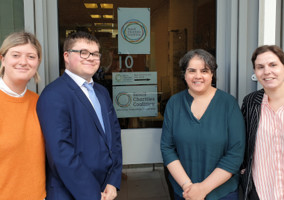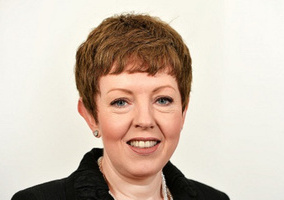Charity leaders must do more to show that they understand the public's expectations and what they are doing to change if they want to stem the fall in the public trust, Baroness Stowell, the chair of the regulator, has said this week.
The Charity Commission has published the text of a speech given by its chair earlier this week at an event for women chairs and chief executives of charities. In it she called on the sector to be more open about changes, highlighted some of the progress the regulator has made and reflected on where the regulator could do more.
Stowell said that the Christmas period is “a time when we lift our heads above our own individual hopes, worries, ambitions, interests, and think about others,” adding: “People want to see that what goes on in a charity is motivated by the same spirit of charity that prompts them to volunteer at a shelter on Christmas day, or sacrifice a luxury for themselves in order to make a larger Christmas donation.”
This includes decisions about fundraising, senior pay and how charity staff are treated, she said.
“People want charity leaders to be more conscious in showing they understand what is expected of them.
“That is what we at the Commission are calling on charity bosses to help us with,” she added.
‘Come forward and tell people what you are doing’
Stowell said that many leaders already “understand that charity is not just about what you do, but how you do it”.
But she said more needed to be done. “If we are to meet the challenge of a decline in public trust, charities must show the people they rely on for support that they are taking them seriously”.
She urged charities to be more open about the changes that they are making, and said: “What I’m asking is that you come forward and start acknowledging in public how you are changing and why.”
Stowell also emphasised that there was no difference between those charities which are considered household-name charities and other parts of the sector.
“Because as soon as you carry that registration number, you are associated with the expectations the public have of charities. There is no hiding place,” she said.
‘We’ve had to up our game’
Stowell also said that the Commission itself must improve.
“All our work must amount to more than the sum total of our regulatory functions,” she said.
“That’s a big promise for a small regulator to have made. That requires a lot of change on our part, and some of it hard. But we’ve all got to up our game.”
She said the regulator has made progress, in what has been its busiest year, and said that since April it has concluded 95 statutory inquiries.
“This is a far higher rate of closure than we’ve seen in previous years,” she said. In 2017/18 the regulator concluded 79 statutory inquiries.
It has also extended the opening hours of its call centre opening hours and made it easy for whistleblowers to contact the Commission, she said.
The Commission has more than halved the length of its safeguarding guidance from nearly 4,700 words to under 2,000, she added.
But she said the regulator needs to do more when it comes to supporting small charities, something the chief executive of the Small Charities Coalition, Rita Chadha, raised in an interview with Civil Society News this week.
She also said there is a “big task in ensuring that our register data is a useful tool that helps people make informed choices about how to give to charity, and get involved in charity”.
|
Related articles












